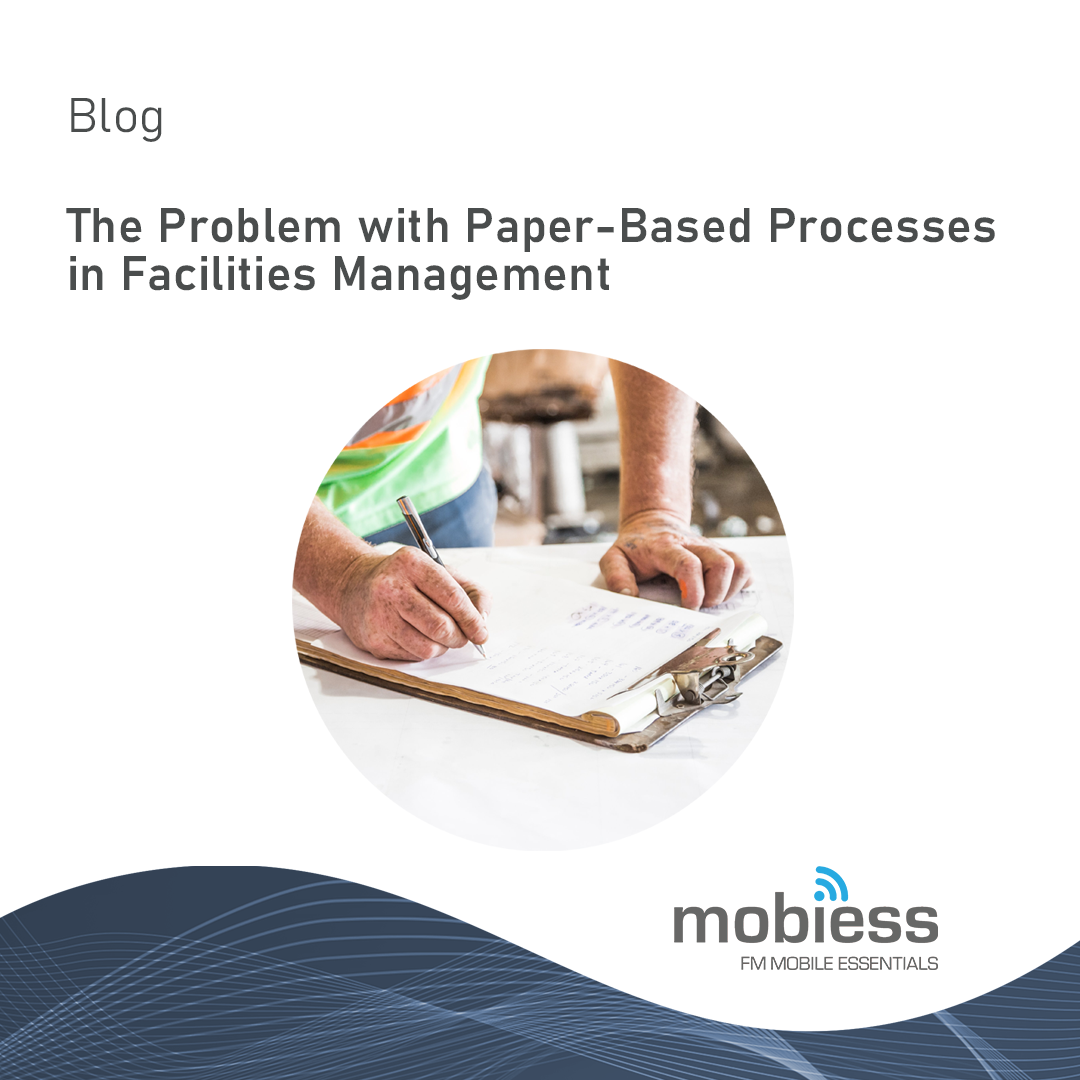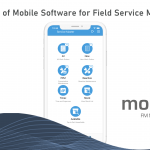Today, it’s impossible to even imagine the business world without technology. Things like the internet, video calling, and project management apps make our lives a great deal easier, simplifying tasks and facilitating communication. Companies across the world are adopting emerging technologies to gain a competitive advantage and streamline their processes.
This means that the vast majority of businesses now store their data digitally. Gone are the days when data was handwritten on paper and tucked away in a filing cabinet. Now, anything recorded on paper is eventually converted into digitised data.
Facilities management is no exception; most information is inputted into digital systems. However, there are still a large number of companies that process this information on paper. They distribute work on paper, complete field inspections with a clipboard and pen, and ultimately collate the information in a central office. This means that all data collected in the field is stored in a team member’s van or car until they visit the office, where it is handed to someone at a desk, who converts it into a spreadsheet or word document to create a digital, sharable copy.
This process is not only cumbersome and slow but also increases risk of human error. The data passes through many hands before it is stored, creating excessive opportunities for mistakes to be made and information to be lost. Ink can smudge, pens can run out, and paper can be damaged. Even if, miraculously, no errors occur, the information will not be stored or shared as quickly as it should be.
Those who swear by the clipboard often argue that they can collect information more quickly on paper, which would be great if collecting data was the only thing they needed to do. Information is not collected to be stored away in a box and never looked at again. Instead, it is stored and processed for many purposes: to share and retain, to streamline work processes, to update maintenance work and compliance inspections, and to schedule and delegate tasks to the appropriate teams.
After data is inputted into a spreadsheet from paper, it is imported to a database with countless validations. A lot of the data can end up being rejected if it fails to meet the validation criteria.
Compare this process to the use of an e-form solution: validations and rules can be plugged into the digital platform, ensuring the form is primed in advance on every tablet and mobile device. This prevents information from being rejected when inputted into a database.
All data collected is guaranteed to be high quality and relevant. It is presented in a clear and informative way, easily comparable to previous periods, other sites, upcoming schedules, and timetables for ongoing works.
Data should not simply be collected and filed away; collecting it is much more than a box-ticking exercise. Mobile forms solutions make data usable and useful to the whole team. Newly inputted data is immediately updated so that anyone who has access to the system can see real-time updates and respond in the moment. This effectively streamlines information-sharing, which is crucial in facilities management.
Picture meeting with a client to discuss agreed KPIs. Their scoring comments, requests, and actions are inputted into the tablet throughout the meeting. Immediately, the data is collated to present a branded report of that meeting directly to the client, all before anyone has even left the room. All non-conformities are raised as help desk tasks in your back-end system, be it a CAFM, IWMS or CMMS system, and everyone is in the know on where the project stands, what needs to be done, and who is taking ownership of which task.
Call our team on 0203 411 1795 or email us at [email protected] to find out how our highly configurable mobile forms and auditing platform can help digitise your processes and integrate smart data into your business. Call today or use our website to schedule an online 1 to 1 demonstration of our systems!



 Mobiess Ltd
Mobiess Ltd